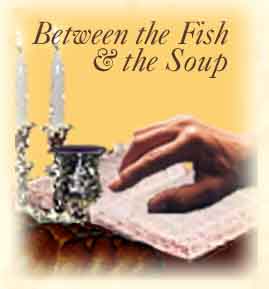

|
Pharaoh said to (Moses), "Go away from me! Beware... do not see my face
any more...." Moses said, "You have spoken correctly. I shall never see your
face again" (10:28-29).
This exchange took place after the Plague of Darkness. G-d 'hardened Pharaoh's heart' (10:19) and he refused to let the Israelites go. According to Sforno this does not mean that Pharaoh lost his power of making a free choice, but that G-d gave him the power to withstand the agony of the plagues: should Pharaoh indeed let them leave, it would be out of recognizing that G-d's will was to be obeyed. Why, therefore did Pharaoh throw Moses out of his palace after the Plague of Darkness? Of all the Plagues, this one was the least unpleasant. Unlike all other plagues they did not cause pain or permanent damage to body or property. One reason may be that the plague of darkness advanced the very message that Pharaoh forced himself to ignore. The previous eight plagues conveyed G-d's displeasure in the present, but nothing in the future. The absolute blackness of the dark - as a plague in its own right - symbolized something terrible to come should Pharaoh not release the Israelites as G-d willed. Pharaoh understood this hint well enough. His response was to continue his rebellion against the Divine Command a stage further. Previously he refused to let the Israelites go hoping that things would carry on no worse than before. Now this most intense darkness told him that death and total destruction were imminent. His heart was indeed hardened by G-d - but only to the degree that the inconvenience of the darkness would not influence his decision. His stubbornness knowing that permanent doom was at hand was entirely his own choice. Therefore his sin was of the highest order. It could loosely be compared to the 250 men who took part in Korach's revolt. There the rebels sinned 'against their souls' (Num. 17:3). (Rashi on Num. 16:7) implies that those men were so determined to rebel, that they did so in the full knowledge that they would die for it. Similarly Pharaoh had previously recognized the supremacy of G-d and His Judgement over himself - This time I have sinned: G-d is the Righteous One, and I and my people are the wicked ones (9:27). Notwithstanding, he chose to rebel against Him, in the full knowledge that it would be futile. This would explain why Pharaoh threw Moses out. Given such a state of mind, he found Moses' words and indeed presence more unbearable after the Plague of Darkness than after any other plague. It would also explain why the ultimate doom of the Death of the Firstborn followed directly after the Plague of Darkness. This article is provided as part of Shema Yisrael Torah Network For information on subscriptions, archives, and http://www.shemayisrael.co.il Jerusalem, Israel 972-2-641-8801 |